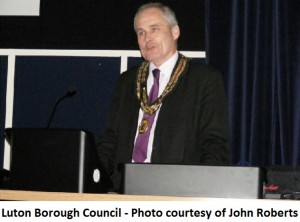Following on from our previous ‘Enforcement’ blog, covering the highlights of this year’s IRRV Revenues and Enforcement conference held at Keele, please find the third and final blog in the series which focuses on what was covered on the topic of Council Tax.
 COUNCIL TAX & DEBT GROWTH
COUNCIL TAX & DEBT GROWTH
On the Council Tax side of things there was an emphasis on coping with the growing arrears crisis with Council Tax arrears apparently the fastest growing debt after payday loans. According to the StepChange debt charity 2.9 to 3 million people are currently in deep financial difficulty in the UK, with 21 million struggling to pay bills each month. Those most likely to be in debt have children, are aged between 25-39, are renting from private landlords and are working full time.
We were told that people fall into debt in different ways, typically people are just about coping then something happens like a divorce, a bereavement or a cut to working hours and some just can’t cope with the changes in their life. According to research carried out by StepChange 13 million people cannot rely on savings to keep up with bills for a month if income dropped.
COST TO UK OF PROBLEM DEBT
The charity noted that affordable repayment plans won’t help everyone, but they were a good starting point. They also stated that problem debt costs society around £8.3 billion in social costs, arising from homelessness, lost productivity in the economy and an increased chance of people or children going into care.
Which poses the question, how can you ensure better outcomes for people in debt? A few suggestions were put forward including; brokering longer term payment plans, affordable debt management plans and trying different messages and approaches to establish different results.
 CHALLENGES FACED BY LOCAL AUTHORITIES IN COUNCIL TAX COLLECTION
CHALLENGES FACED BY LOCAL AUTHORITIES IN COUNCIL TAX COLLECTION
We also heard from Luton Borough Council on the challenges they face which may sound familiar to many other authorities across the UK. These included a wider remit faced by their customer services staff with an increase in face to face and telephone contact of 20%. More broadly Local Authorities they noted across the board had more rent and Council Tax to collect. Workloads continue to become more complex and challenging which in turn impacts administration costs. Alongside this they expect Local Authorities to experience an increase in demand for debt and budgeting advice and expect to see their bad debt and write-offs increase. They also cited the ongoing challenge of identifying the ‘won’t pays’ from the ‘can’t pays’.
Overall this conference provided a great insight into the current state of what is happening in enforcement, rating and revenue collection and the complexities and challenges faced by many Local Authorities today. We look forward to finding out how these compare and contrast with how Authorities are coping in Scotland and will be attending the Scottish Annual Conference being held in Crieff on September 2nd and 3rd 2015 to find out more.
